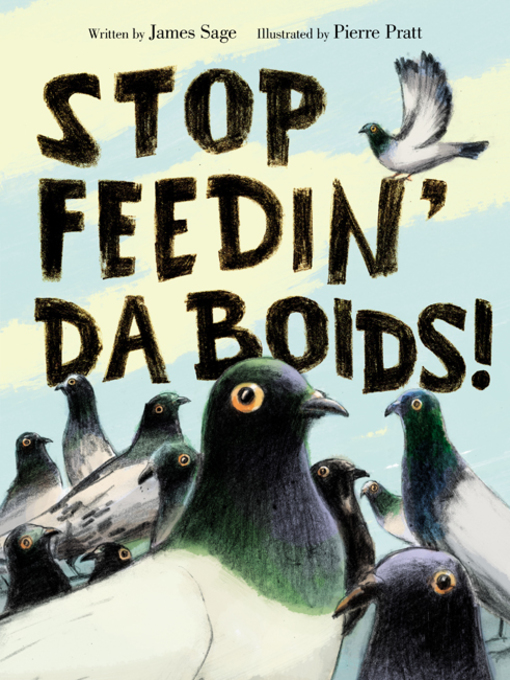When Swanda and her dog, Waldo, move to Brooklyn from the country, they miss the wildlife they left behind. Until they discover the pigeons. "Oh, look! What dear little birds! Come, Waldo, we'll get them a bird feeder all their own." But a bird feeder in the city attracts lots and lots and lots of birds—and the neighbors don't like them, or their mess, one bit. So when Swanda is unable to fix things, her neighbors step in with their own Brooklynese solution: "SWANDA, YOU GOTTA STOP FEEDIN' DA BOIDS!"
- New eBooks
- Real Life Unsolved Mysteries
- Understanding the Israeli-Palestinian Conflict
- Prep School Page Turners
- Dark Academia
- Laughing Out Loud
- Be Proud Everyday!!
- Books for Francophiles
- Love Has Always Been Love
- Black & Queer & Here!
- Queerabilty
- Real Horror: True Crime Stories
- All Star Fiction
- See all ebooks collections
- New audiobook additions
- Always Available Audiobooks!
- 2025 Audie Awards Nominees
- Real Life Unsolved Mysteries
- Audio in a Day
- Laughing Out Loud
- Escape Room Listens
- Audiobooks for the Whole Family
- Books with a Bop
- Nonfiction Listens That Reaches for the Stars
- Survival and Adventure
- Love Is Love
- Travelling Through Time
- See all audiobooks collections




